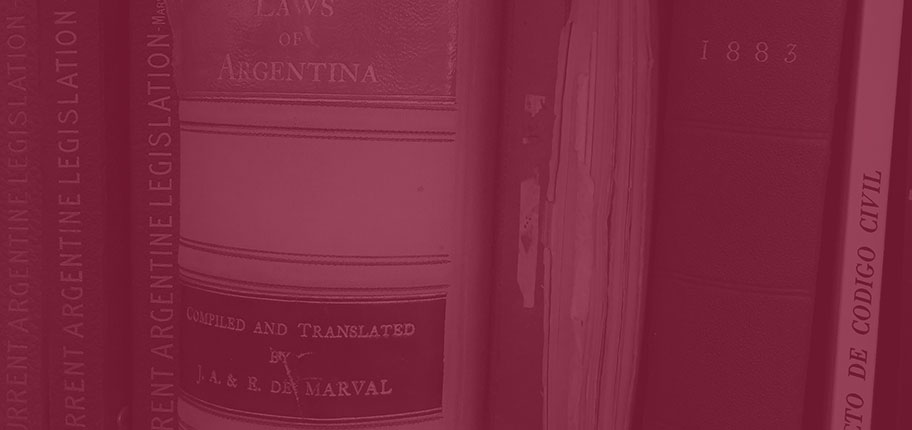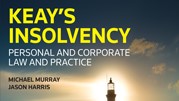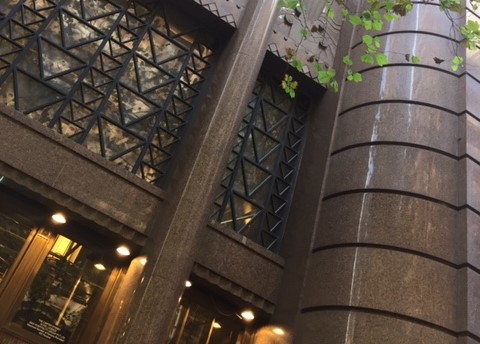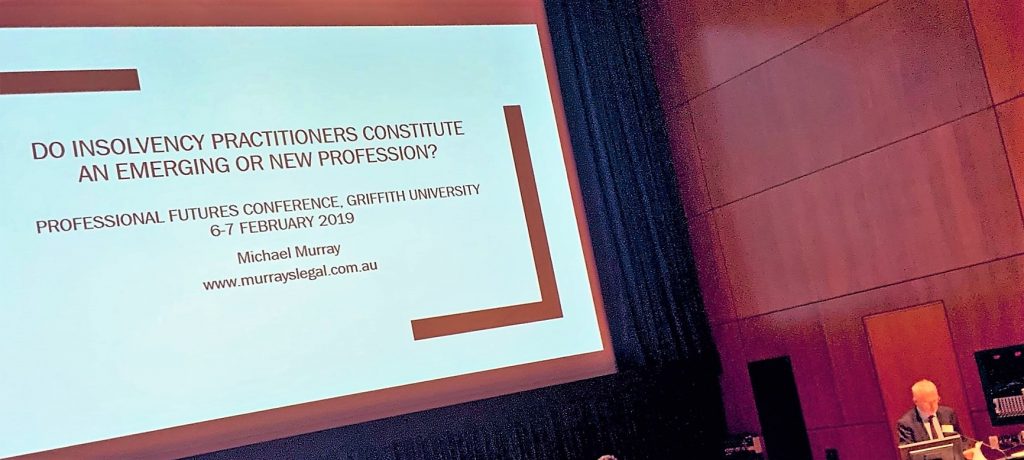Courts professions and regulation
Some views on ASIC v Wily & Hurst
The views of Justice Brereton of the NSW Supreme Court have not prevailed following the decision by the High Court ...
A running account of insolvency history – the lawyers and the accountants
13/05/2019
In an account of the interaction between lawyers and the newly titled accountants in 19th century England, it has been ...
ASIC’s “significant element of vexation”
11/05/2019
featured Law & Practice
ASIC has failed in an application to have an inquiry conducted into joint liquidators’ conduct – Hurst and Wily – ...
Insolvency and climate change and environmental liabilities
24/04/2019
General
INSOL Academics in Singapore on 1-2 April 2019 and the following day’s meeting of academics at the National University of ...
An inquiry into a liquidator’s conduct, some many years ago
24/02/2019
Law & Practice
ASIC has succeeded in obtained a court order for an investigation of the conduct of a liquidator, in relation to ...
Keay’s Insolvency – note from the authors – progressive updates since publication
24/02/2019
General Books and journals Blog
As the authors of Keay’s, and in order to assist readers, we propose to make brief reference to law changes ...
ASIC’s review of liquidators for 2017-2018 – continued fall in complaints
This ASIC Report 610 has been released, with some interesting points to note, and questions raised. It largely expands on ...
Bills subject to scrutiny
That a bill is introduced into parliament after an extensive period of community consultation does not necessarily mean that it ...
The future of the insolvency ‘profession’
I was pleased to have given a presentation on the future of the insolvency profession, at Griffith University’s excellent Professional ...
Practitioner’s bankruptcy registration cancelled, and liquidator registration indefinitely suspended
A bankruptcy disciplinary committee has issued its reasons for deciding to cancel the registration of a trustee in bankruptcy, based ...
Hayne Report – banks and receivers and agricultural enterprises
04/02/2019
General Hayne Royal Commission Report Blog
The Hayne Royal Commission declined to examine the conduct of receivers appointed by banks, in particular over agricultural enterprises. Nevertheless, ...
The costs and time in administering justice
Newspaper analyses of the work of judges by reference to numbers of matters heard, words written and time taken can ...
Environmental regulator prevails over liquidators’ right of disclaimer – decision of the Supreme Court of Canada
The rights of an environmental regulator against an insolvent company prevail over the right of the company’s liquidator to disclaim ...
Liquidator’s right to disclaim contaminated land – important decision pending
Murrays Legal has reported for some time on the progress of an important issue of legal conflict before the Supreme ...
Does insolvency practice constitute a profession?
21/01/2019
General Conferences Blog
Those who specialise in insolvency law and practice, and restructuring, would no doubt consider they act professionally, however that term ...
Opportunistic and manipulative insolvency practitioners?
Insolvency practitioners’ (IP) remuneration for the work performed in administering an insolvent estate attracts public attention, much of which is ...
Professional body regulation of Australian insolvency practitioners
Having reviewed the current regulation of insolvency practitioners (IPs) by both ASIC and AFSA, ARITA is now examined, and to ...
Insolvency Practitioners Regulation Act (NZ) 2019?
A New Zealand government committee has recommended the passage of the long awaited Insolvency Practitioners Bill with some few amendments, ...
Bankruptcy trustees’ performance 2017-2018
AFSA’s Personal Insolvency Compliance Report 2017-2018 may be rather welcome in its positive reporting of its findings in relation to ...
More soft law – ARITA’s insolvency practice statements
ARITA has released a number of draft Practice Statements for comment. These Practice Statements are designed to give ‘technical’ guidance ...
Revised draft of Australia’s 2014 insolvency code of practice
ARITA has released a consultation draft of its Code of Professional Practice for Insolvency Practitioners. This will be the 4th ...
New draft version of APES 330 – Insolvency Services
APESB has issued a long-awaited revision of its insolvency code – APES 330 Insolvency Services – with a view to ...
Liquidators – spending money to justify spending money
Charging a second fee to justify charging an initial fee might seem odd but this can be the case when ...
Liquidators: “… no obligation to conduct any investigations beyond the bare minimum …”
It has been said of liquidators that in no other profession is a highly qualified professional expected to work for ...
Categories
Main Menu
























